What tariffs has Donald Trump announced and what might they mean?
The US president set out sweeping trade levies hitting countries across the world

US President Donald Trump said his “liberation day” announcement was a “declaration of economic independence”.
Speaking in the White House Rose Garden, he set out sweeping trade levies hitting countries across the world.
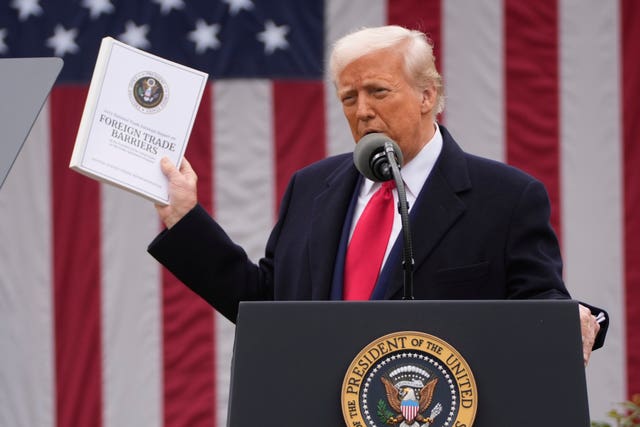
What tariffs has he announced, and what could they mean for the UK?
– What is a tariff?
A tariff is a form of tax imposed on goods or services imported from abroad. It can restrict trade by making products more expensive, and can be used as a form of protectionism – to protect and encourage domestic industry.
– What tariff will the UK be getting?
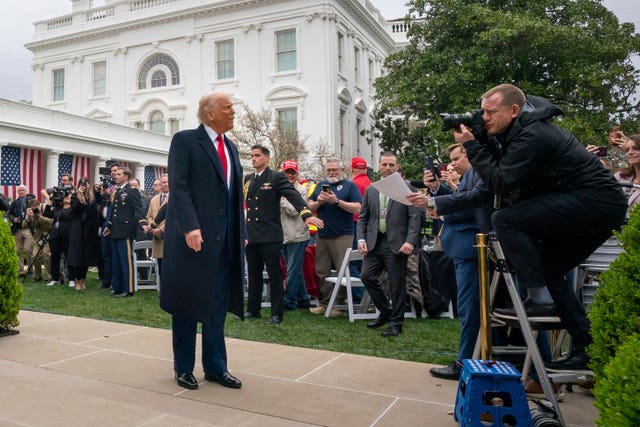
Mr Trump slapped a 10% tariff on US imports of UK goods.
The tariff is the same level as the global “baseline” he set, meaning it could not have been any lower.
But in a move which experts fear could cost 25,000 jobs in the British car industry, he confirmed that from midnight in Washington, 5am on Thursday in the UK, a 25% tariff would be imposed on all foreign cars imported to the US.
The White House said the tariffs will not add on to any existing taxes on imports of steel or cars.
Sir Keir Starmer’s Government had been lobbying to be spared the tariffs and hopes to strike an economic deal with the White House which will mitigate the impacts.
– What about other countries?
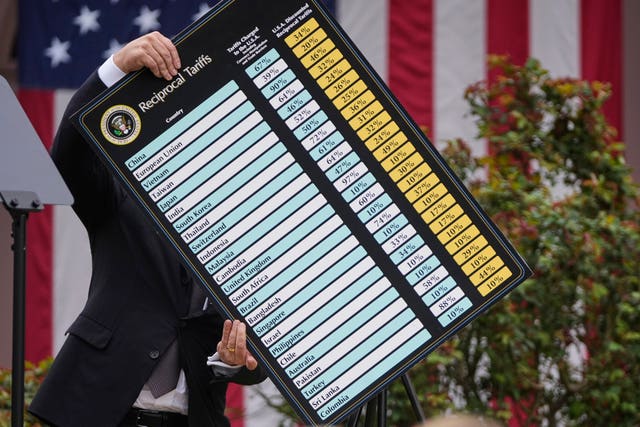
President Trump’s tariffs will affect almost every country in the world.
Countries and blocs with higher tariffs on US goods were hit with tougher import taxes – the European Union will attract a 20% rate for example.
The president imposed more punitive reciprocal tariffs on countries he said were the worst offenders.
Among the other reciprocal tariff levels announced were China: 34%, South Korea: 25%, India: 26%, Vietnam: 46%, Taiwan: 32%, Japan: 24%, Thailand: 36%, Switzerland: 31%, Indonesia: 32%, Malaysia: 24% and Cambodia: 49%.
– How has the Government responded?
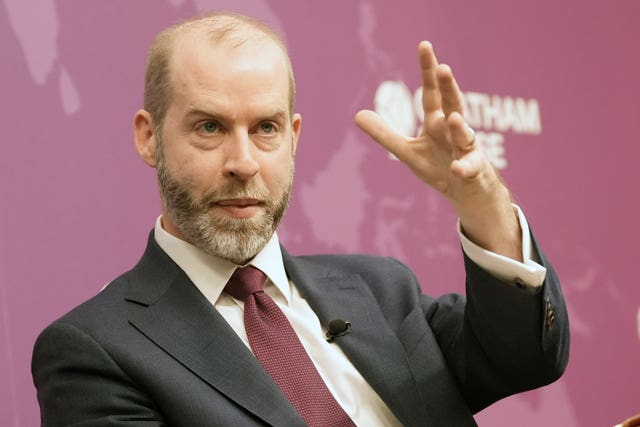
The Business Secretary said “nothing is off the table”.
Jonathan Reynolds said the UK is “committed” to doing a deal with the US which he hopes “will mitigate the impact of what has been announced today”.
Mr Reynolds said: “The US is our closest ally, so our approach is to remain calm and committed to doing this deal, which we hope will mitigate the impact of what has been announced today.
“We have a range of tools at our disposal and we will not hesitate to act. We will continue to engage with UK businesses including on their assessment of the impact of any further steps we take.
“Nobody wants a trade war and our intention remains to secure a deal. But nothing is off the table and the Government will do everything necessary to defend the UK’s national interest.”
– How has British industry reacted?

UK Steel condemned further tariffs being imposed.
Director general Gareth Stace said: “The new 10% tariffs, stacked on top of the existing 25% levies, are not only sticking the knife in again, but this time turning it in the wound for maximum effect.”
The White House said the tariffs will not add on to existing taxes on imports of steel.
The Society of Motor Manufacturers and Traders described the tariffs as “deeply disappointing and potentially damaging”.
A spokesman for the Scotch Whisky Association said it was “disappointed”.
The Confederation of British Industry said UK businesses need a “measured and proportionate approach” to the announcement.
Some 59% of small UK exporters sell into the US market, the Federation of Small Businesses (FSB) said.
“Tariffs will cause untold damage to small businesses trying to trade their way into profit while the domestic economy remains flat,” Tina McKenzie, the FSB’s policy chair, said.
– How has the dollar reacted?
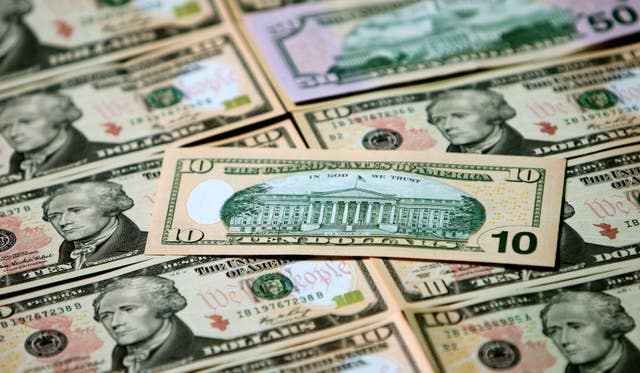
The US dollar fell sharply against key currencies on Wednesday evening as Mr Trump delivered his tariffs announcement.
It dropped about 0.7% against the pound, at 0.768, shortly after the speech began.
The US currency was weakening further against the euro, falling about 1%, at 0.9162.





